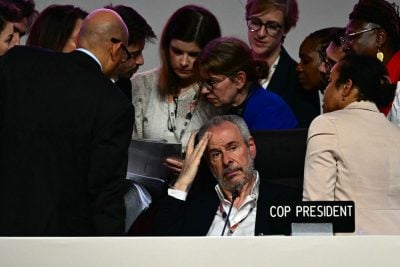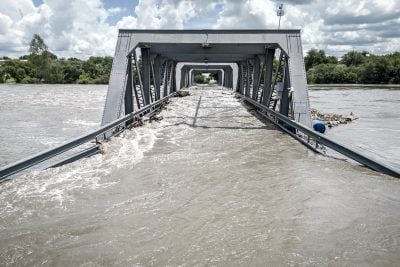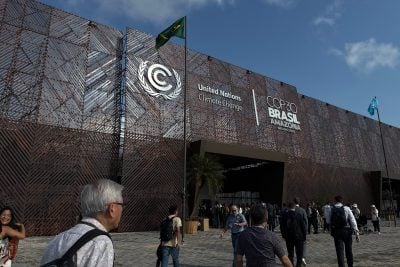Botswana is taking steps to diversify its economy away from resource revenues by forging a future for itself as a financial hub. Yet experts argue that more needs to be done to develop the country’s knowledge economy.
In April a 1, 758-carat-diamond the size of a tennis ball was pulled from a Botswana mine. The latest discovery usurps the 1,109-carat Lesedi La Rona as the world’s second largest gem. Discovered in Botswana in 2015, Lesedi sold for an eye-watering $US53 million.
Despite the dizzying price-tags of some of Botwana’s gems, the future of the minerals sector may not be so glittering as forecasts suggest the country’s mineral resources could run out in the next 15 years.
This could be bad news for a country which relies on the industry as the lifeblood of the economy. Diamond mining pulled in one-quarter of Botswana’s GDP in 2018, around 85% of export earnings, and about one-third of government revenues.
The industry has also catapulted Botswana into the position of an upper middle income-country and one of Africa’s wealthiest.
Capital city
Government efforts to diversify their revenue streams have proved fruitful over the past 25 years, with GDP becoming more diversified. Mining contributed negatively to growth in the decade from 2004 -13 when the main driver was services.
That said, diamond exports increased again in 2017 to the highest levels since 2013 at about 22 million carats of output, driving Botswana’s economic growth of about 4.5% in 2017 and increasing foreign reserves to about 45% of GDP.
An announcement by the Botswana Stock Exchange on Tuesday that they would list its stock within the next two years, and expect to cede control of the institution to the private sector (it is currently 80% owned by the government) is a growing sign the government is steering the economy away from diamond dependency.
With 70% of Botswana’s money now invested outside country the move hopes to bolster the transparency of the exchange to draw in more international companies to trade their stock in Botswana.
The business of brains
As the government hunts for alternative incomes efforts to grow a diversified knowledge-based economy could also prove a gem, argues Oneh Golding the country manager of USB Executive Development (USB-ED) Botswana, a corporate executive education provider across Africa.
Corporate training is a central plank of the knowledge economy, which generates revenue streams with innovations such as human-machine collaborations, high skill levels and information, Golding says.
“Diamonds and beef have, traditionally, been the cornerstones of Botswana’s economy. But what happens when these resources get ‘tapped out’?” she asks.
“We must look ahead and make the change to empower a new generation of knowledge workers.”
Since setting up shop in Botswana 12 years ago, USB-ED’s sales have consistently grown, suggesting an upward trajectory for corporate education in the country. As corporates and governments put training across the spectrum on the agenda to accelerate economic transformation USB-ED anticipates that this trend will grow, and recently opened a Botswana office in Gaborone.
Professional development enables talent to bring scarce skills and innovation to office environments, and helps self-starters to get their ‘gigs’ off the ground which is vital for Botswana’s burgeoning young and highly educated population, Golding believes.
“Our bright young minds are our most important resource and something we need to nurture.”
Golding says that across USB-ED’s corporate partners in state-owned companies, financial, mining and government sectors, young leaders are pushing boundaries, challenging conventions, and hungry for scarce skills.
“Innovation is top-of-mind for these leaders. They know a knowledge economy requires crucial ‘human’ soft and hard skills, like the ability to empathise, collaborate, and problem-solve.
“They’re also committed to leading in a transformational way, with a skills- and development-centered approach.”
Individuals have the capacity to change an organisation, while organisations collectively have the potential to bring Botswana into the future and the knowledge economy needed to evolve Africa’s economies, she says.
Entrepreneurship is another critical part of the knowledge economy of Botswana’s future, Golding contends.
“We want to give young people the best chance of leading – self, others, business and society. SMEs are pivotal and need to have every chance of sustained success.”
As times change, and globalisation and digitisation become ever more ubiquitous government policy will be a the heart of the country’s ability to to keep abreast with global and digital-age development, she says.
With local and international competition driving progress, organisations will place a greater emphasis on talent management and succession planning, especially for key roles. Public-private partnerships that focus on education at all levels will be pivotal to this, Golding concludes.
Want to continue reading? Subscribe today.
You've read all your free articles for this month! Subscribe now to enjoy full access to our content.
Digital Monthly
£8.00 / month
Receive full unlimited access to our articles, opinions, podcasts and more.
Digital Yearly
£70.00 / year
Our best value offer - save £26 and gain access to all of our digital content for an entire year!
 Sign in with Google
Sign in with Google 



